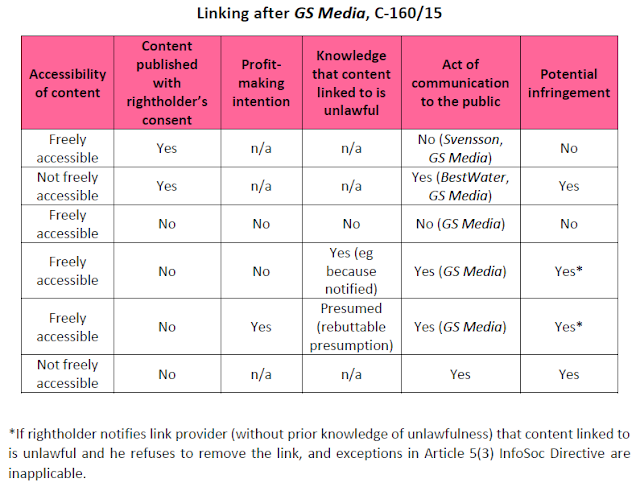Linking to unlicensed content: Swedish court applies GS Media

Is unauthorised linking to unlicensed content an act of communication to the public within Article 3(1) of the InfoSoc Directive and, if so, a potential copyright infringement? Readers will promptly recall that last month the Court of Justice of the European Union (CJEU) addressed this very question in GS Media , C-160/15 [discussed here , here , here , here ] , and concluded that - to answer - one must not only consider the classic duo (1) act of communication + (2) to a public, but also " several complementary criteria, which are not autonomous and are interdependent" [para 34] . These, according to the CJEU, include whether the posting of hyperlinks is carried out for profit and whether the person who posts the link has knowledge of the unauthorised character of the content linked to. All in all, the situation can be summarised (simplifying) as follows: After GS Media , the question ha...


